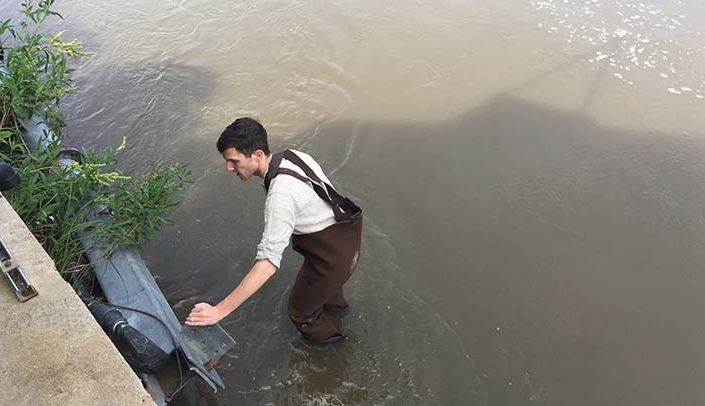A new chicken processing plant opening in the countryside near Fremont, Neb., this year, with increased demand for poultry farming to provide the plant’s needed supply, has brought excitement about economic opportunity. And concerns about environmental impact.
The plant, built to provide chicken for Costco, will need area farmers to grow some 17 million chickens a year, while processing hundreds of thousands a day. How does that level of agricultural production affect Nebraska’s soil, groundwater, and ultimately, human health?
That idea, that farming can impact its surrounding human community, is called “One Health.” Wayne Mathews, associate professor and director of research, physician assistant education, in the College of Allied Health Professions, said University of Nebraska scientists are studying this impact not in opposition to agriculture. But, to see how the state’s biggest industry can continue to work in harmony with its population.
“There has been a lot of interest, especially from the agricultural community,” Mathews said.
Mathews is principal investigator, with co-investigator Linsey Donner, assistant professor of medical laboratory science, also in allied health, in a pilot project to study water runoff before and after the plant’s opening. They are joined by Alan Kolok, Ph.D., formerly of the University of Nebraska-Omaha, now at the University of Idaho’s Idaho Water Resources Research Institute.
They also are part of a larger watershed-study project in collaboration with the University of Nebraska-Lincoln, led by UNL professor Shannon Bartelt-Hunt, Ph.D.
Farming can be especially impactful on the surrounding environment because many livestock are raised and treated using antibiotics, Mathews said. The study will be looking at four specific things:
- Checking the water for antibiotic levels – antibiotics not only kill dangerous bacteria, but can change the composition of “good” bacteria as well;
- Looking for the presence of antibiotic-resistance genes – these can be especially significant for the human population, as we want our antibiotics to work for us when we need them;
- Actual live bacteria cultures — including salmonella;
- Organic environment, including nitrates and phosphates.
Mathews said investigators expect to find elevated levels of all of these.
The plant’s parent company, Lincoln Premium Poultry, has pledged to adhere to higher-than-legal standards, according to reporting by NET News/Harvest Public Media. Mathews said the nation’s top poultry producers have re-engineered, re-tooled and restructured their own operations after similar studies, and after an initial investment, “they are making profits again.”
“Our idea is to protect antibiotics, so they can continue to work for people,” Mathews said.
